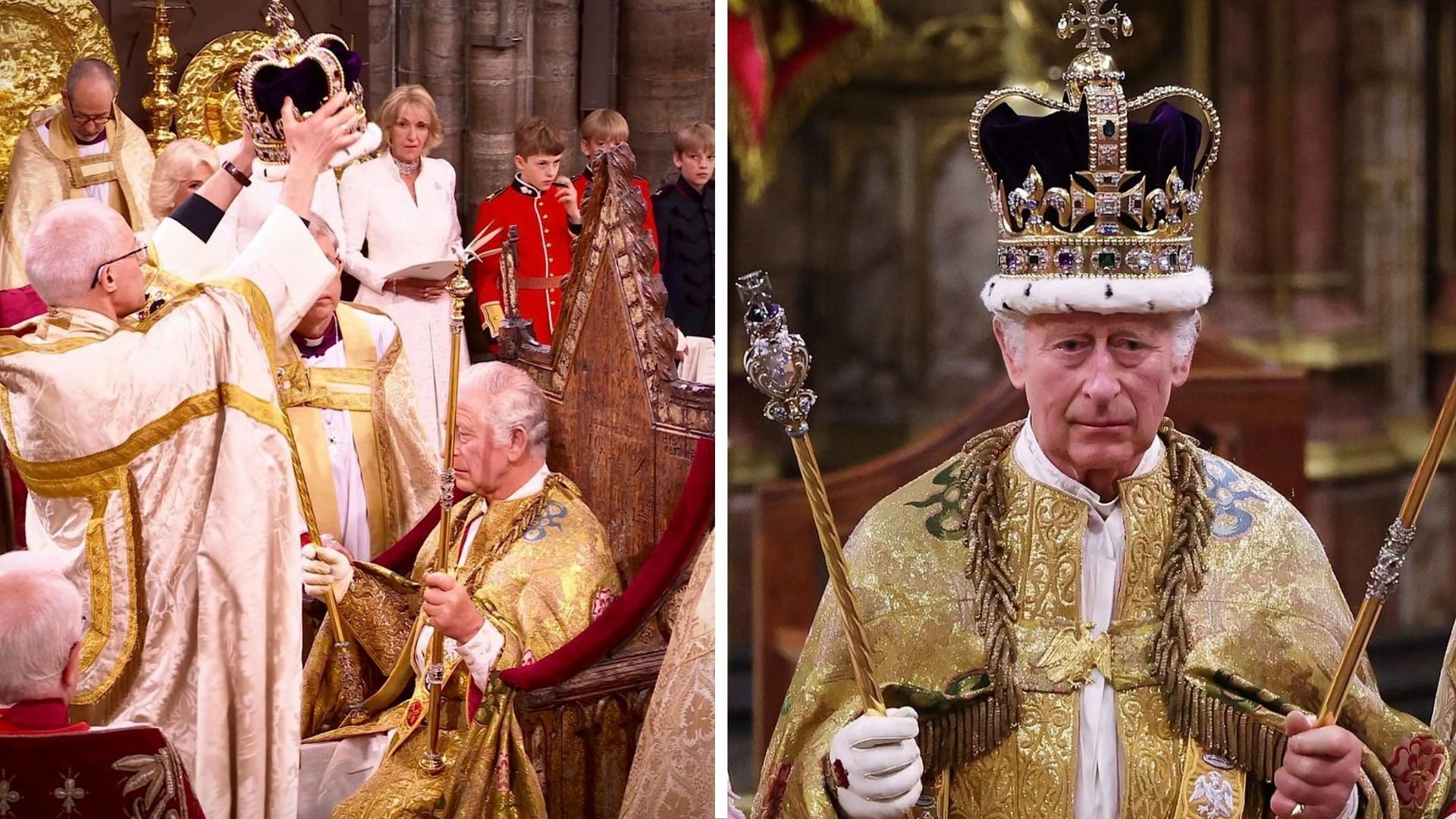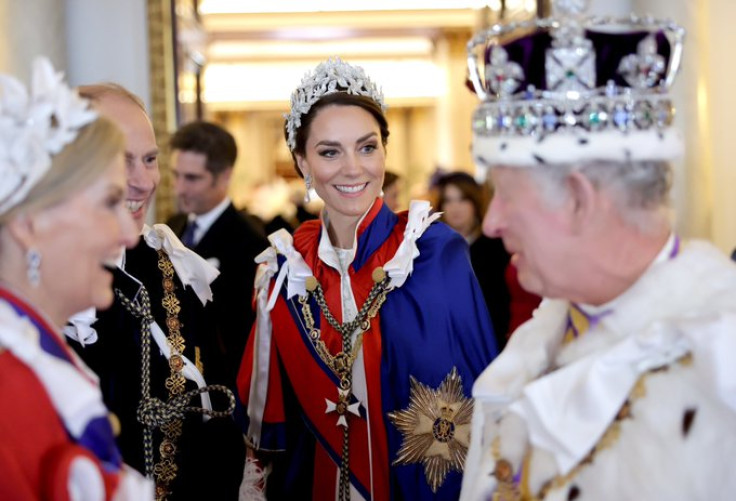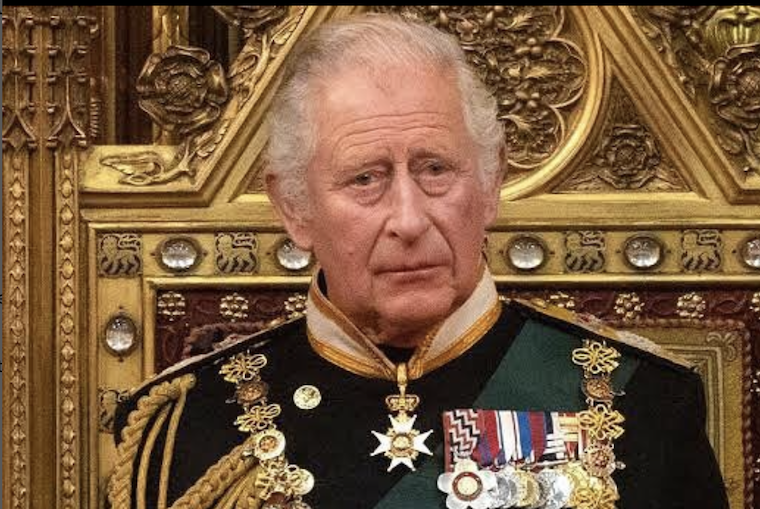How Is King Charles's Health? An Update On The Monarch's Journey
King Charles III's health has been a topic of significant public interest and global concern ever since Buckingham Palace made the startling announcement of his cancer diagnosis earlier this year. Less than a year after his historic coronation, a moment of immense national pride and tradition, the news sent ripples across the globe, prompting an outpouring of well wishes and genuine concern for the reigning monarch. While the Palace has, understandably, maintained a degree of privacy regarding the specific type of cancer and his prognosis, recent updates from senior royal aides and candid remarks from family members offer a clearer, albeit still carefully managed, picture of his progress and his remarkable approach to managing his illness while continuing his monumental duties.
The Diagnosis: A Timely and Unexpected Discovery
The King's cancer diagnosis came to light in early 2024, during a period when he was already undergoing treatment for a separate, benign issue: an enlarged prostate. It was during this routine medical intervention, a procedure aimed at addressing a common condition for men of his age, that the undisclosed form of cancer was discovered. This timely detection, while undoubtedly a profound shock to the King and the Royal Family, allowed for immediate commencement of treatment, a critical factor in any cancer journey.
Buckingham Palace confirmed the diagnosis, issuing a statement that balanced transparency with the need for privacy. They noted that the King, who was 75 at the time of the announcement and will be celebrating his 76th birthday next month, "remains wholly positive about his treatment and looks forward to returning to full public duty as soon as possible." This statement immediately set a tone of resilience and determination, indicating the King's resolve to face his health challenge head-on.
- Vera Jimenez Husband
- Bladensburg High School Photos
- Chocolate Covered Strawberries San Francisco
- Aubrey Peterson
- Paige Model
Key Aspects of the Diagnosis:
- Undisclosed Cancer Type: The Palace has never disclosed what type of cancer the King has, nor what his prognosis is. This decision aligns with the Royal Family's long-standing tradition of keeping personal health matters private, while still informing the public of significant developments.
- Incidental Discovery: The cancer was found incidentally while the King was undergoing treatment for an enlarged prostate, highlighting the importance of regular medical check-ups and the potential for early detection.
- Immediate Treatment: Charles's cancer was discovered following treatment for an enlarged prostate, and the monarch has undergone weekly treatment ever since, indicating a consistent and ongoing medical regimen.
Managing Illness While Maintaining Royal Duties
One of the most striking and admirable aspects of King Charles's health journey has been his unwavering commitment to his royal duties, even amidst ongoing treatment. A senior royal aide recently shared an update in a new interview with The Telegraph, confirming that the monarch is "managing his illness as he continues his royal duties." This dedication underscores the King's profound sense of duty and the unique demands of his role as head of state.
Initially, following the diagnosis, the King took a brief break from public-facing engagements to allow him to focus on his weekly treatment sessions and recuperation. This period of reduced public appearances was a necessary step for his health. However, it wasn't long before he began a phased return to public life. Buckingham Palace announced that King Charles would be "returning to public duties after a period of treatment and recuperation for cancer." His first public engagement at a London hospital since Buckingham Palace announced he had cancer was a significant moment, symbolizing his resilience and determination to resume his responsibilities.
A Show of Strength: Public Engagements and Private Resolve
Despite the inherent challenges of undergoing cancer treatment, the King has made several carefully chosen public appearances. These engagements serve not only to fulfill his constitutional role but also to signal his continued engagement with his people and his reign. His stepson, Tom Parker Bowles, Queen Camilla's son, offered a particularly poignant and personal perspective on the King's condition. He told People magazine that King Charles III "is strong" in the face of what he described as a "terrifying disease." This personal testimony from a close family member provides a powerful insight into the King's inner fortitude and the robust support system surrounding him.
While the Palace has been careful not to disclose the prognosis or the exact nature of the cancer, these carefully managed public appearances and reassuring updates from close sources provide a much-needed sense of reassurance to a concerned public. The King's ability to balance his demanding treatment schedule with his significant public responsibilities is a testament to his dedication, resilience, and the careful planning by his medical and royal teams. It demonstrates a monarch who is not only committed to his recovery but also to the continuity of his reign.
The Public's Eye and Considerations for the Future
The health of a monarch, particularly one as globally recognized as King Charles III, naturally attracts significant public and media attention. Beyond the official announcements and carefully curated public appearances, there was increased scrutiny and discussion, particularly after his youngest son, Prince Harry, gave an emotional interview to the BBC. While not directly about the King's health, this interview subtly brought the monarch's well-being into sharper focus, alongside broader discussions about family unity and the future of the monarchy.
As concerns mount about the monarch’s long-term health and the broader implications for family unity, the public and palace alike appear to be preparing for a future that, while not immediately alarming, necessitates careful consideration. This doesn't imply an immediate crisis or a drastic change in the line of succession, but rather a proactive and pragmatic approach to ensuring the seamless continuity of the monarchy. The King's decision to be transparent, albeit limited, in sharing his diagnosis has been widely appreciated, fostering a sense of connection and empathy with the public who are rooting for his recovery.
Looking Ahead: Resilience and Continuity
King Charles III's journey through cancer treatment is an ongoing one, a personal battle fought under the glare of the public eye. His commitment to his duties, even while undergoing weekly treatment and recuperation, demonstrates remarkable resilience and a deep-seated sense of responsibility. The updates, though carefully worded and often sparse in detail, consistently portray a monarch who is actively managing his health with determination and grace, all while continuing to serve his country and the Commonwealth.
The focus remains firmly on his recovery and his ability to continue his reign effectively and robustly. The public watches with a blend of hope, admiration, and respect as King Charles III navigates this significant personal challenge with dignity, strength, and an unwavering commitment to his role. His steady presence reinforces the stability of the monarchy in a rapidly changing world.
Final Summary
King Charles III's health has been a primary concern since his cancer diagnosis, which was discovered incidentally during treatment for an enlarged prostate. While the specific type of cancer and his prognosis remain undisclosed by the Palace, the King, who was 75 at diagnosis and will soon turn 76, has demonstrated remarkable strength and unwavering commitment to his duties. He has continued to manage his royal responsibilities alongside weekly treatment sessions, with senior aides confirming his active engagement despite his illness. His stepson, Tom Parker Bowles, has personally attested to the King's strength in facing what he described as a "terrifying disease." The King has made a phased but determined return to public engagements, offering reassurance to the public of his resilience and dedication. Although discussions about his long-term health and family unity persist, the prevailing message is one of a monarch actively and resolutely managing his condition, ensuring the continuity and stability of the British monarchy for the foreseeable future.

King Charles' health worries doctors

How King Charles III, Kate Middleton Are Doing Amid…

The Centenary of The Coronation of King Charles as We Look Back At His